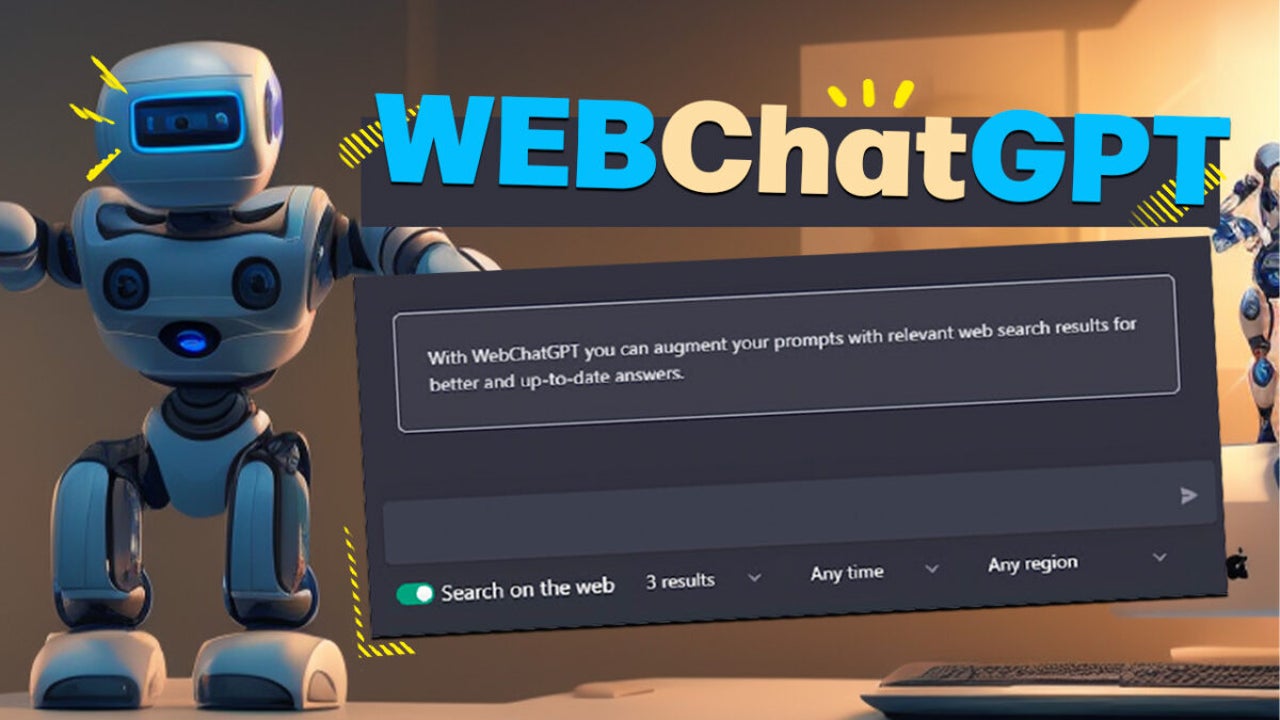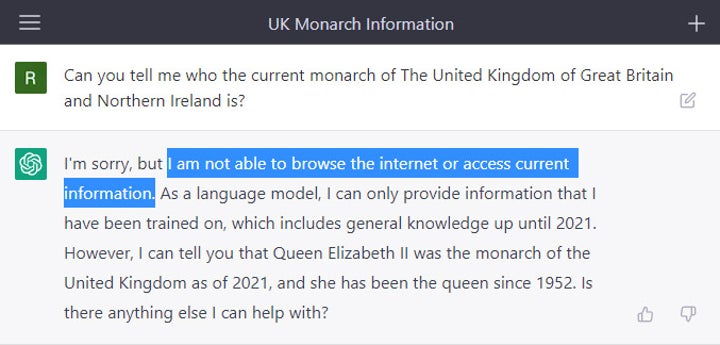News
WebChatGPT: New kid on the AI block for scraping the internet

- January 9, 2023
- Updated: July 2, 2025 at 3:12 AM

ChatGPT is an incredibly large language model created by OpenAI that lets users experience and explore the power of artificially intelligent systems. This tool is useful in many spheres of entertainment and can do anything from acting as a pseudo-mental health companion to writing stories or screenplays based on your prompts. You can even use ChatGPT to play text-based games. So what is WebChatGPT?
There are a few things that ChatGPT cannot do. The utility cannot scrape or browse the web without exploiting a particular loophole, and it has very limited access to anything information posted after 2021. I saw this first-hand when I asked the language model about the current monarch of the UK is. However, there’s a way to get around these rather significant limitations, and it’s easier than you might think.

Let me introduce you to WebChatGPT, the Chromium-based browser extension that revolutionizes how useful ChatGPT can be. The extension is remarkably easy to use and is available on any Chromium-based browser, such as Google Chrome, Mozilla Firefox, Microsoft Edge, and even my browser of choice, Brave. All you need to do is head to the Chrome Web Store and search for the utility, or hit this link. From there, simply click Add to Chrome (this will alter depending on the browser you use), and the extension will sort itself out.
From there, it’ll automatically open an interface with ChatGPT, but with a few enhancements. The first thing you’ll see is a new bar below the text box into which you type your prompt. This bar has new options for you to try out, such as altering the time frame within which to search, deciding how many web results you’d like the utility to issue, and to which region the utility should confine its search. You can also hit the toggle to the left of these options to prevent the utility from searching the web for answers.
While this greatly improves the workability of the ChatGPT language model, it does make verifying sources and the legitimacy of information slightly more of a task. However, the utility seems to be able to point out when information may be out of date and provides you with URLs, contextual excerpts, and dates from which to begin your investigation. Overall, WebChatGPT is a game-changer in the AI space, and it’ll be interesting to see how widely this particular extension is adopted into the modern professional and entertainment industries.
Before you head on over to mess around with ChatGPT and this new browser extension, just keep in mind that neither ChatGPT nor OpenAI are responsible for the accuracy of the information you find, particularly if you work with the new browser extension. This is not an intelligent robot; it is a language model. The intelligence behind how this class of utility works is not the same as that which drives you or me.
It’s best not to expect AI to behave in ways that we understand, and it’s of paramount importance not to ascribe human characteristics to these utilities. The characteristics to which I refer are the ability to offend, upset, or concern. This is merely coding, software, and a little hardware. ChatGPT does not understand human experiences, nor should it.
Latest from Russell Kidson
You may also like
 News
NewsAfter sweeping through its country, the Portuguese version of the most iconic series of Spanish television arrives
Read more
 News
NewsThis remake of an iconic film about marital collapse arrives in theaters
Read more
 News
NewsOrange Belgium is facing a significant data leak affecting 850,000 customers
Read more
 News
NewsThis new Netflix series delves into a political crisis led by women
Read more
 News
NewsThe AI tools and how they are redefining the online presence of companies
Read more
 News
NewsDaniel Day-Lewis returns after 8 years of retirement, and he does it in style directed by his son
Read more